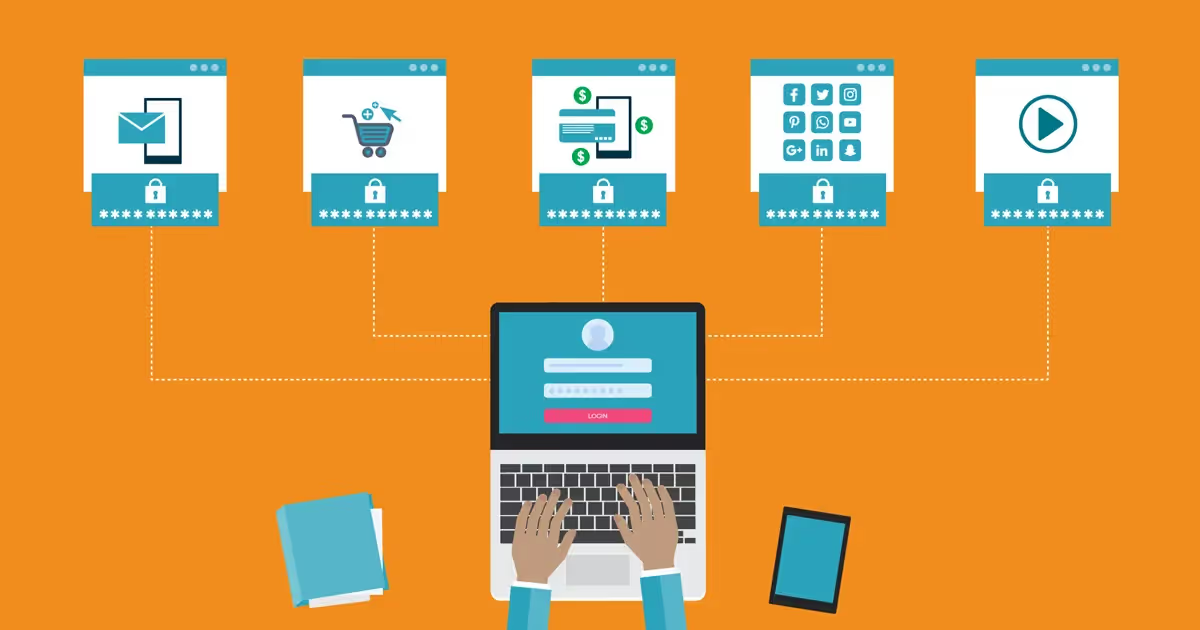February 10, 2025

In today's digital era, businesses must manage an ever-growing number of passwords to access essential applications, databases, and online services. However, many organisations still rely on outdated and insecure methods such as storing passwords in Excel spreadsheets, sticky notes, or physical notepads. While these methods may seem convenient, they present significant security risks and make businesses vulnerable to cyber threats.
A password management solution offers a more secure, efficient, and reliable way to store and access credentials. This article explores the dangers of traditional password storage, the benefits of password managers, and why every business should transition to a modern password security approach.
The Risks of Storing Passwords in Excel, Notes, or Notepads
1. Lack of Encryption & Security
Excel spreadsheets and text documents do not offer strong encryption. Even if an Excel file is password-protected, tools exist that can easily crack or bypass the security measures, exposing sensitive login credentials. Additionally, notepads and sticky notes are physical liabilities, as they can be lost, stolen, or read by unauthorised individuals.
2. High Risk of Data Breaches
According to the Verizon Data Breach Investigations Report, 81% of hacking-related breaches result from stolen or weak passwords. If businesses store passwords in unsecured documents or physical notes, they are at a higher risk of cyberattacks, phishing schemes, or insider threats.
3. No Access Control or User Management
Traditional storage methods do not allow businesses to manage who has access to which passwords. This creates an issue when employees leave the company or change roles, as sensitive passwords may remain in the hands of unauthorised individuals. Without a proper password management system, businesses lack visibility into who accessed, modified, or shared credentials.
4. Human Error and Inefficiency
When employees store passwords manually, there is a higher chance of losing or forgetting them, leading to frequent password resets and wasted time. Studies show that the average employee spends 12 minutes per week resetting or retrieving passwords, leading to decreased productivity. A centralised password manager eliminates this problem by securely storing and auto-filling credentials.
Benefits of Using a Password Management Solution
A password management solution offers a centralised, secure, and efficient way to handle business credentials. Here’s why companies should adopt one:
1. Military-Grade Encryption
Most enterprise password managers use AES-256 encryption, the same standard used by governments and financial institutions. This ensures that even if hackers gain access to the stored data, it remains encrypted and unreadable without authentication.
2. Strong Password Generation & Autofill
Password managers generate random, complex passwords for every account, reducing the risk of weak passwords being cracked. They also auto-fill login credentials, eliminating the need for employees to remember or manually enter passwords.
3. Secure Password Sharing for Teams
Many organisations need to share passwords for corporate tools (e.g., shared social media accounts, software licenses). A password manager allows businesses to securely share login credentials without exposing them in unencrypted emails, messages, or documents.
4. Multi-Factor Authentication (MFA) Integration
Password managers enhance security by integrating with multi-factor authentication (MFA), requiring additional verification (such as a fingerprint or one-time code) before accessing credentials. This adds an extra layer of protection against cyber threats.
5. Access Control & Audit Trails
Admins can set user permissions, ensuring that employees only access the passwords relevant to their role. Additionally, most enterprise password managers offer audit logs, tracking who accessed or modified credentials. This helps businesses maintain compliance with GDPR, ISO 27001, and other security regulations.
6. Protection Against Phishing Attacks
A common cyber threat is phishing, where attackers trick employees into entering credentials on fake login pages. A password manager automatically fills in credentials only on legitimate sites, preventing employees from falling victim to phishing scams.
7. Increased Productivity & Time Savings
With a centralised password manager, employees no longer need to remember, reset, or search for passwords. According to cybersecurity reports, businesses using password managers save an average of $1.3 million annually due to increased security and reduced time spent on password-related issues.
Best Password Management Solutions for Businesses
If you're considering adopting a password manager, here are some of the top-rated solutions:
- IT Glue – Ideal for businesses, with robust encryption and team collaboration features.
- LastPass – Popular for its ease of use and zero-knowledge security model.
- Dashlane – Offers dark web monitoring to alert businesses if credentials are compromised.
- Bitwarden – An open-source and cost-effective solution for businesses of all sizes.
- NordPass – Developed by NordVPN, offering end-to-end encryption and biometric login.
While Excel spreadsheets, notepads, and sticky notes may seem convenient, they expose businesses to unnecessary risks. A password management solution is a cost-effective investment that improves security, efficiency, and compliance.
With cyber threats on the rise and businesses increasingly dependent on digital tools, secure password storage is no longer optional—it’s a necessity. By implementing a trusted password manager, companies can protect their sensitive data, enhance team collaboration, and reduce the risk of security breaches.
If your business is still using Excel, Post-it notes, or unencrypted files for password storage, now is the time to make the switch. The cost of a password manager is far less than the potential damage caused by a cyber breach.


